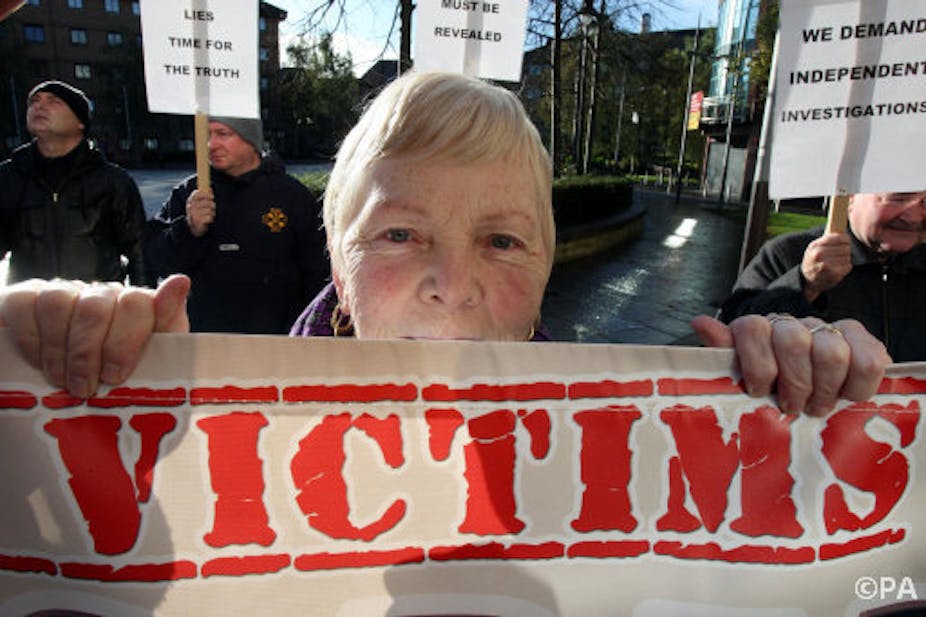The principle that someone accused of an offence is “innocent until proven guilty” is a cornerstone of the criminal justice system in England and Wales. But a new idea of what constitutes “victimhood” may be starting to erode the standard presumption of innocence.
Since the late 20th century, concern for the well-being of both complainants and witnesses in the criminal justice system has grown rapidly. This is a response to the acknowledgment that both deserve greater involvement in the investigative, litigation and post-verdict stages.
This newfound concern has seen changes made to the legal framework in an attempt to rectify a perceived imbalance which favours the defendant over the complainant. In practical terms, it has led to a significant increase in support services being made available to both complainants of crime and witnesses.
But the groundswell of concern for witnesses and complainants has also seen those who allege crime relabelled as “victims” of crime, and the “victim” label is now often attached before any verdict is delivered – regardless of whether or not, in legal terms, the complainant has actually suffered a criminal wrong. “Alleged victim” is, of course, a fair enough expression, comparable with complainant or accuser – but we should be deeply concerned about the increasing unqualified use of “victim” before a verdict is reached.
A wave of political rhetoric has implicitly and explicitly popularised the idea that “victim” and “complainant” are interchangeable categories. The increasing use of this language throughout the criminal justice system, including by the police, the Crown Prosecution Service and others dedicated to supporting complainants, ignores how the unqualified use of the term “victim” plays to precisely the sort of preconceptions that devices like presumption of innocence are meant to work against.
To make matters worse, this rush to extend victimhood is happening across the political spectrum.
Keir Starmer QC, the former Director of Public Prosecutions, recently announced he is to help Labour draw up plans to give greater protection to rape victims and abused children when they appear in court. The plans will be enacted should Labour come to power in 2015; Starmer described them as a “golden opportunity to recast the criminal justice system as a criminal justice service fit for victims”. His taskforce also includes Labour peer Baroness Lawrence of Clarendon, the mother of Stephen Lawrence, and Peter Neyroud, former chief constable of Thames Valley Police and a criminologist at Cambridge University.
In response to the announcement, a Ministry of Justice spokesman argued the new Victims’ Code, which was introduced in December 2013 and which applies the term “victim” at the pre-verdict as well as the post-verdict stage, already covers all the concerns Starmer raised:
It sets out in plain English what people should expect from the moment they report a crime to the end of a trial. It also gives victims the option to read out their personal statement and tell the court how crime has affected them for the very first time.
Both sides in this exchange forget (consciously or otherwise) that legally speaking, one is not a victim of a crime – however heinous – until a verdict is reached. Describing people as such otherwise is not just relabelling; it radically recasts the terms of criminal prosecution.
This is a clear example of a linguistic slippage that marks a deeper ideological shift, and we must think seriously about how it might affect the adversarial criminal trial as it operates in England and Wales. Formally describing any accuser or complainant as a “victim” has the potential to corrupt central concepts of burden and standard of proof, to disrupt a defendant’s right to confront his accusers, and to narrow the minds of those tasked with reaching verdicts – jurors and magistrates alike.
The longstanding pre-verdict use of the term by prosecutors (as well as defendants running cut-throat defences) in trial case theories and storytelling is an acknowledged and acceptable risk, as partisanship and argument-driven accusations are consistent with an adversarial trial system. But the epithet has been frequently applied to complainants in the Criminal Justice System since at least the late 1990s – and it may be nearly too late to stop it bedding in entirely as a formal descriptor.
However, we still have to try to preserve one of the core tenets of British criminal justice: until a court has returned a verdict, the claims of neither side should be accorded priority over the other. Carelessly extending the mantle of “victimhood” to all complainants will only make it more difficult for judges and juries to maintain the openness of mind required before a verdict is reached.

